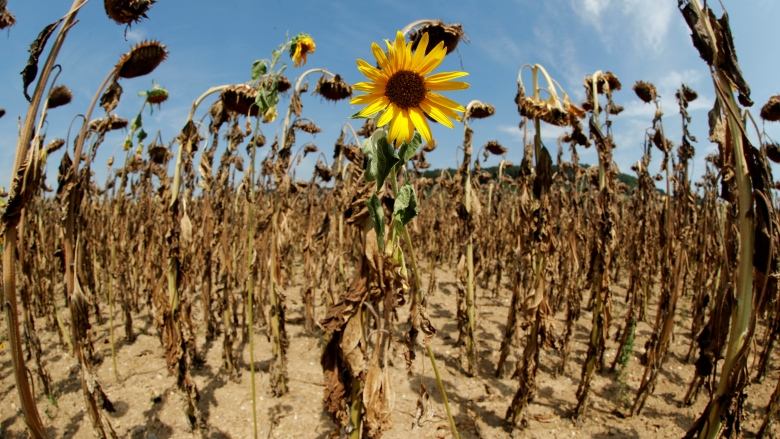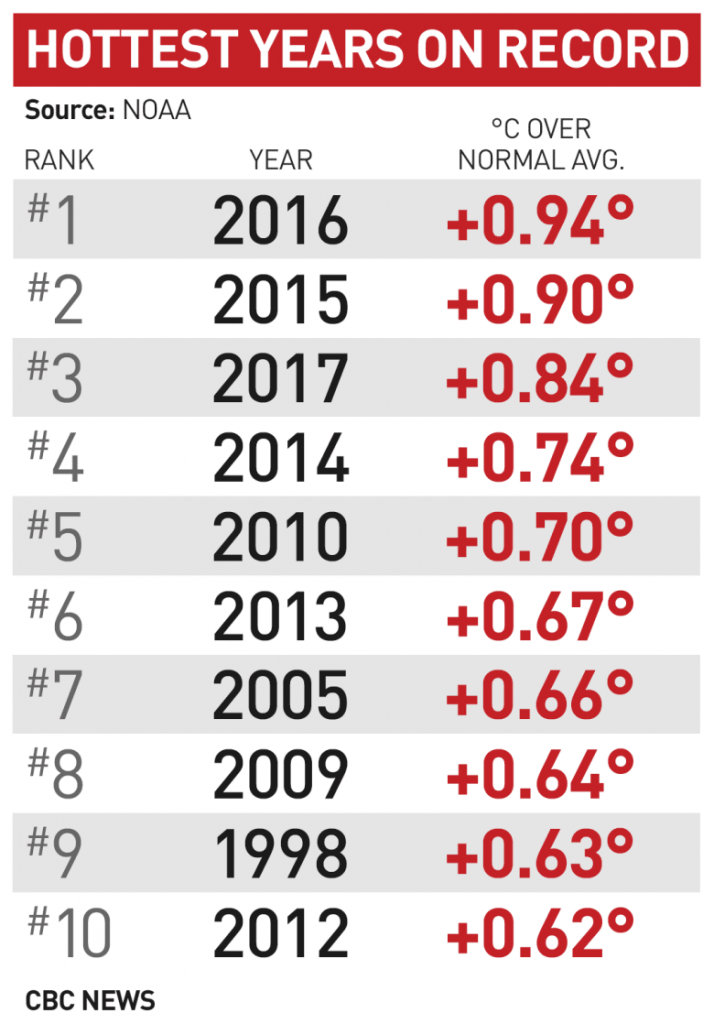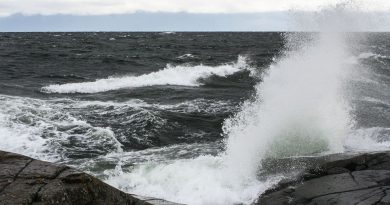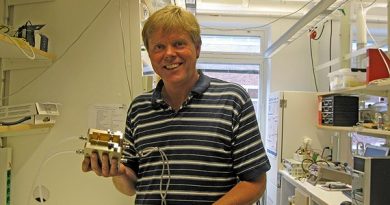Global warming ‘pause’ about to end, raise Earth’s temperatures further

The past four years have been the hottest on record, but new research shows the Earth was actually in a global warming “hiatus” that is about to end. And when it does, natural factors are likely to help an already warming planet get even hotter over the next four years, according to a new forecasting model.
Rising CO2 levels have caused the temperature of the planet to rise, said lead author of the Nature Communications paper, Florian Sevellec, a professor of ocean and Earth science at the University of Southampton in the United Kingdom and a scientist at France’s National Centre for Scientific Research.
Records show 2017 marked the 41st consecutive year with global temperatures at least marginally above the 20th century average, with 2016 being the record-holder. And it’s likely that global temperatures in 2018 will be another one for the record books.

Temperatures to rise further
However, Earth’s natural cycles, which include events like El Nino and La Nina, can also influence global temperatures.
And while Earth seems to have been running a fever for almost a decade straight, the natural cycles have been in their “cooling” phase, Sevellec says — and that’s about to shift, raising the global temperature further.
“It will be even warmer than the long-term global warming is inducing,” Sevellac said.
This cooler phase of the planet’s natural variability is responsible for what is often referred to as a global warming “pause” or “hiatus.” While the planet continued to warm, it seemed to plateau.
But that had to end sometime.
John Fyfe, senior research scientist at the Canadian Centre for Climate Modelling and Analysis at Environment and Climate Change Canada, says that multiple issues were at play but mainly the natural variability of the planet.
“I’m not at all surprised by the results,” Fyfe said of the new study, in which he was not involved. “And the reason for that is that we have gone down this long slowdown period primarily due to internal variability, and the expectation was that we’d come out of it.”

Though CO2 levels were still increasing in Earth’s atmosphere, natural cycles like the El Nino Southern Oscillation (ENSO) in the Pacific Ocean were cooler than normal and offset rising global temperatures.
But, Sevellac says, “the long-term trend was building up.”
This doesn’t mean, however, that we can point to a specific area and better forecast, say, heat waves. Instead, this is a global measurement. But with the Earth continuing to warm, the chances increase for these events.
And global warming doesn’t mean that every location on the planet warms uniformly — there are some regions that can be colder than normal — nor does it mean that each year is hotter than the previous one. Instead, it’s an overall trend that can play out within a decade or more, with the temperature of the entire planet rising over time.
Probability vs. certainty
In order to test the ability to predict future climate outcomes, the model employs a method that looks backward. In this case, it was able to predict with accuracy the climate slowdown that occurred around 1998 and onward to roughly 2014.
But it’s important to note that this is a probability, not a certainty.
The model shows a higher temperature than what was predicted based just on the increased CO2: the probability is 58 per cent for global surface air temperature and 75 per cent for sea surface temperatures.
“Because we tested it over the last century, we know that we are accurate for the likelihood,” Sevellac says. “But the likelihood doesn’t mean it will occur … there exists a small chance of being cold.”
We could already be seeing a shift: after a record-breaking El Nino year just two years ago in 2016 — which caused heat waves, coral bleaching, drought and flooding around the world — the U.S. Climate Prediction Center is forecasting a 70 per cent chance that another one is on its way this winter.
There’s no telling how long the cycle will last, if it does manifest: it could be five years or 10. But what’s important to note, Sevellac says, is that rising CO2 is still the key player in the warming of the planet.
While the study shows that the Earth’s natural variability can have an influence in the short term, Sevellac says, “I think it’s also a demonstration that global warming will still be there after all this natural variability.”
Related stories from around the North:
Canada: Warming Arctic could be at heart of deadly July heatwave, CBC News
Finland: Finland shatters July heat record, Yle News
Norway: Arctic Europe’s July records melted under extreme temperatures, The Independent Barents Observer
Russia: Record heatwave in the Arctic, The Independent Barents Observer
Sweden: Swedish icebreaker reaches North Pole for climate study, Radio Sweden
United States: Rapid Arctic warming is increasing the frequency of blizzards in U.S. Northeast: study, Radio Canada International




Quoted from the Study’s Abstract:
“A Novel Method” = New!
No mention of Peer Review in the news article which is vital to confirm the claims made in the Abstract. In fact, the article warns that the “New” Computer Model and its results should be approached with caution.
The compact nature of this Computer Model, (compatible with personal mobile devices, suggests that it is oversimplified). Like a symphony orchestra reduced to only one of each musical instrument. If anyone is out of tune, misses their mark to start or stop playing etc, the music is ruined.
To overcome this limitation the inputted data (transfer operators) must be of prequalified before use because this compact Computer Model likely doesn’t.